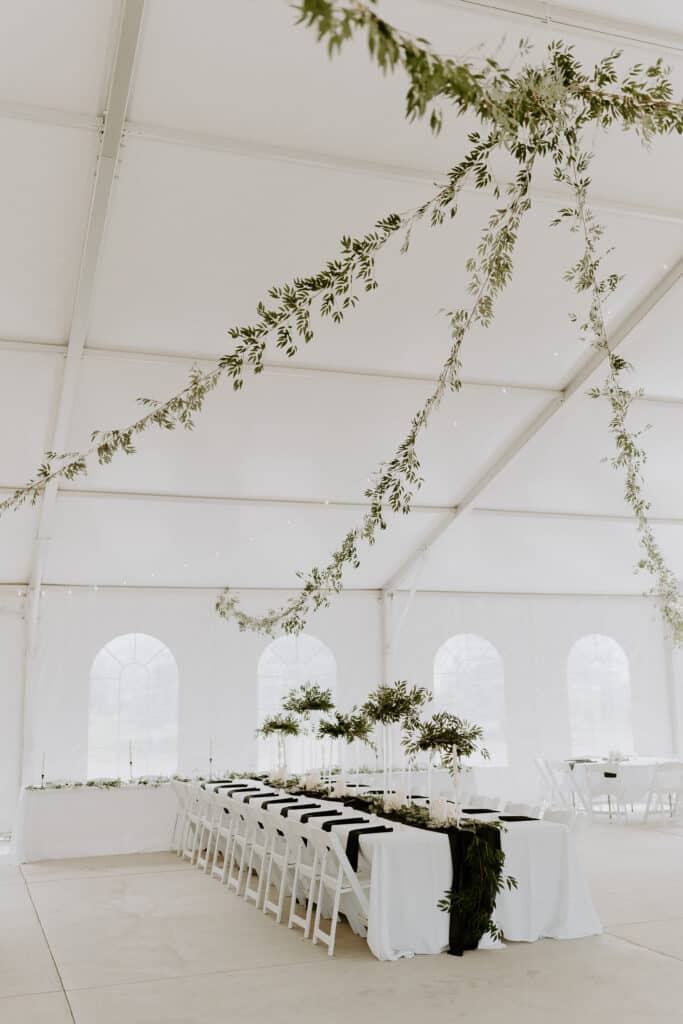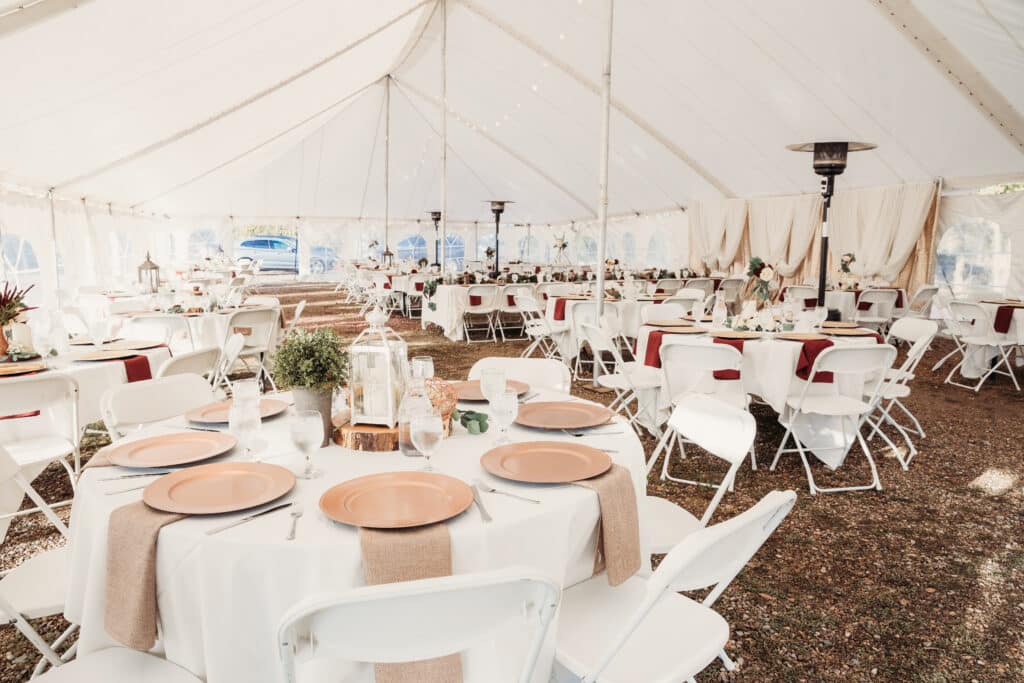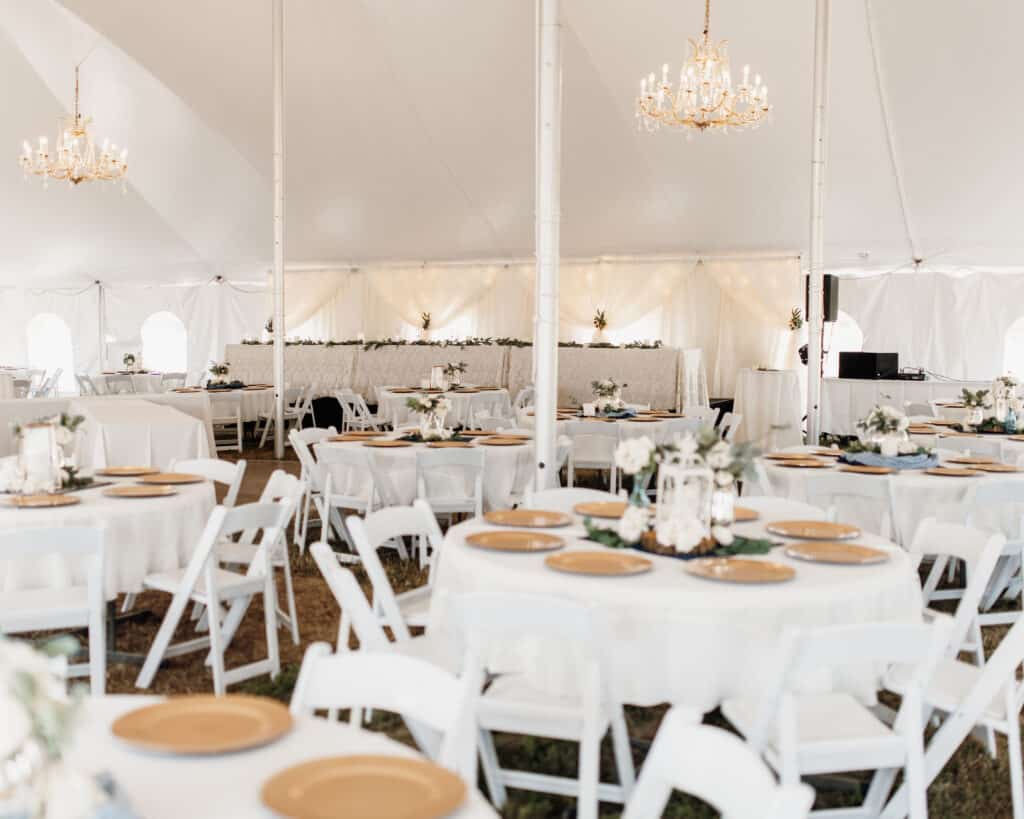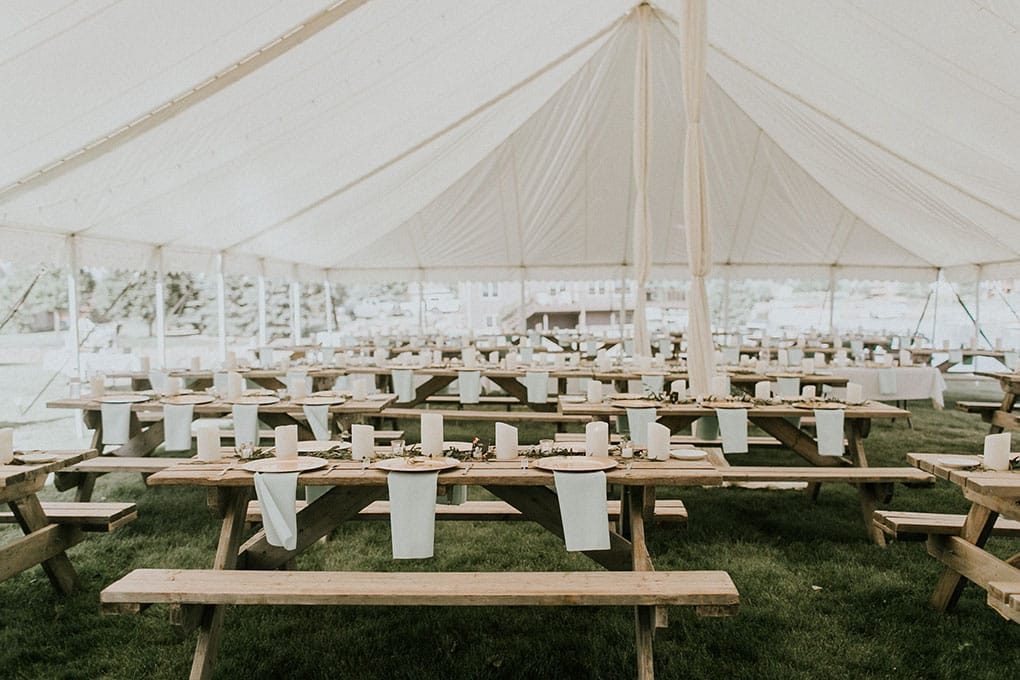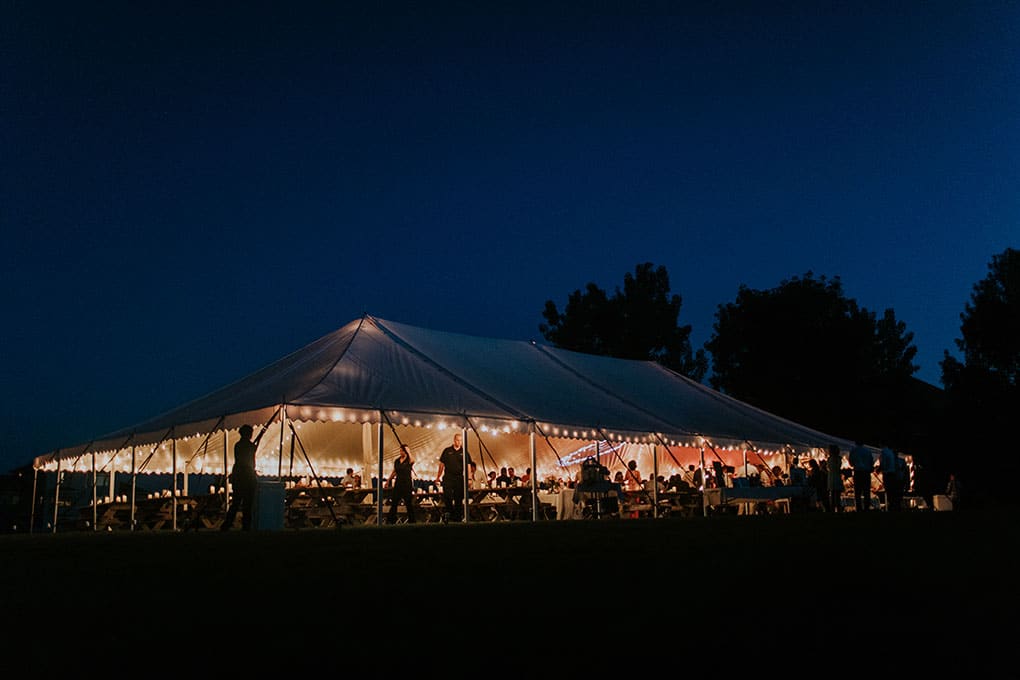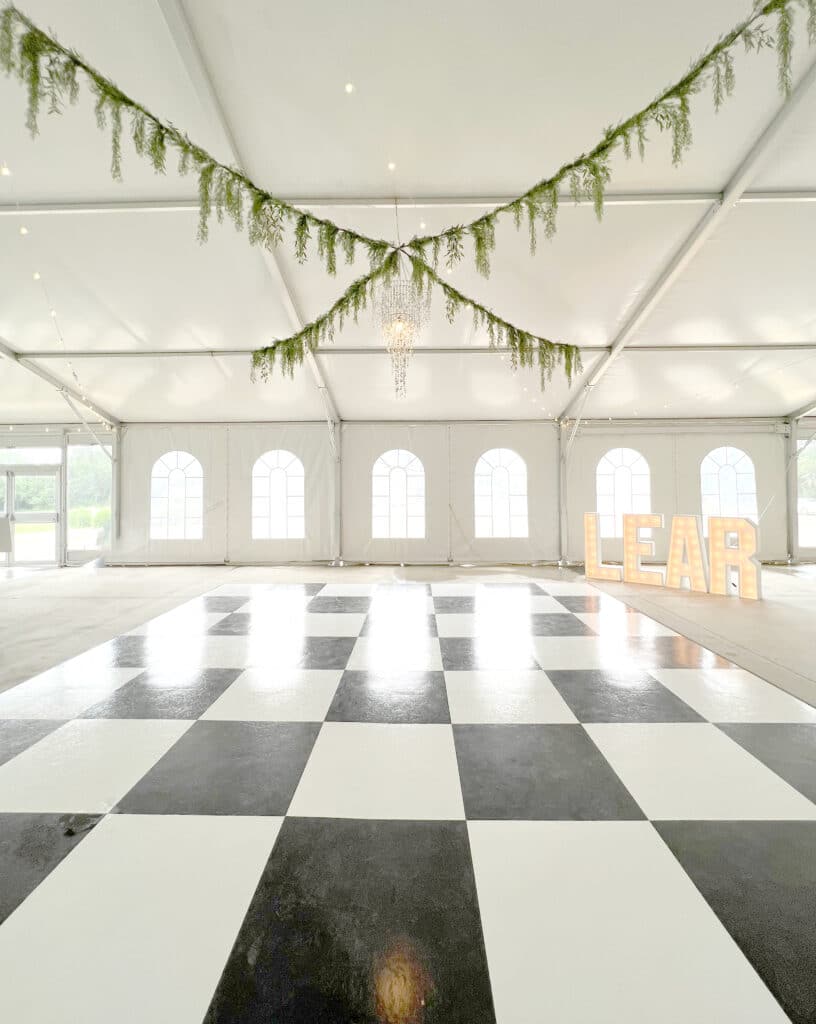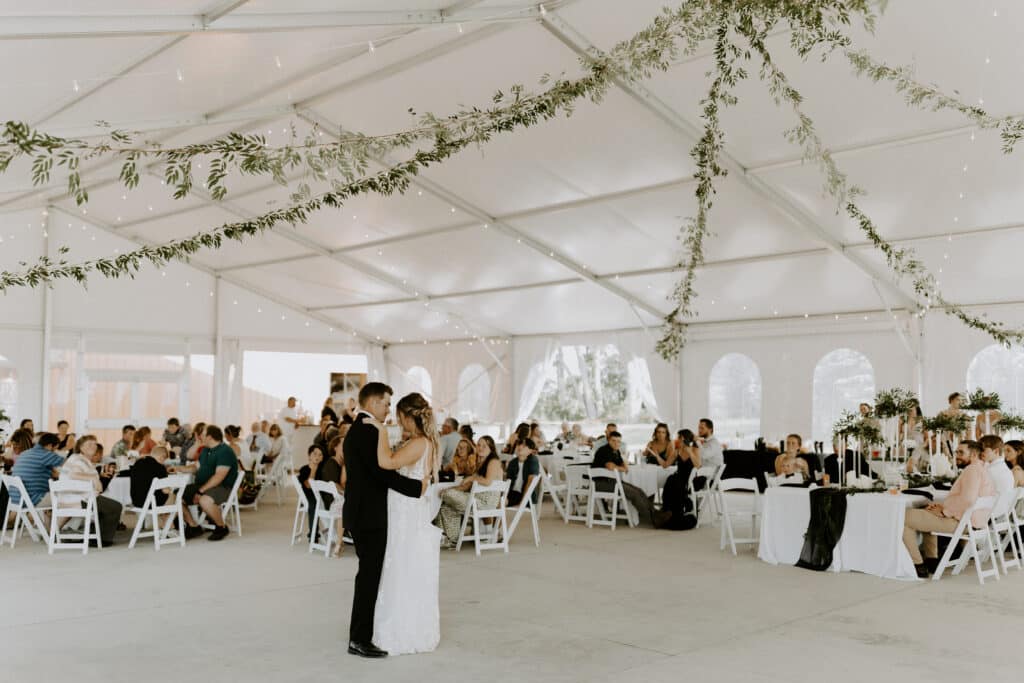Tent Types
Permitting
When planning a wedding under a tent, securing the right permits is crucial. The requirements can vary significantly based on your city and the size of your tent. For instance, in Sioux Falls, SD, a fire permit is necessary for any tent or temporary structure exceeding 1,000 square feet. Typically, you’ll need designated exits with proper signage, similar to indoor venues, with one exit required for every 100 guests. To ensure you meet all local regulations, consult with local tent companies or City Code Enforcement offices—they’ll provide the guidance you need for your event size and location.
Anchoring
Tents are typically secured with ballasts or stakes. Ballasted options involve weights, such as cement blocks or water barrels, to hold the tent in place. However, water barrels are less commonly used due to the risk of tipping, which can compromise the tent’s stability, and cement blocks are often avoided due to high transportation costs. Anchoring, or staking, is typically the preferred method when feasible. Even if your event is on a cement pad, staking can still be done using a drill to insert anchors or stakes into the material. Typically, tent companies can apply a sealant to protect the surface from future damage that the drilling could inevitable cause otherwise. Since every location and event is unique, consult with your local tent company to determine the best anchoring solution for your needs.
Locates
Before installing a tent, it’s crucial to conduct locates to identify any underground utilities. This includes marking fiber optic lines, electricity, gas, telephone, and water lines. Usually, the rental company handles the process of calling in for locates, but property owners should also ensure that any private lines—such as sprinkler systems, gas lines for built-in grills, or septic systems—are marked. To streamline the process, it’s helpful to outline the area where the tent will be set up before requesting locates. Be sure to account for both the tent’s footprint and the additional space needed for securing ropes.
Lighting, Flooring, Walls, Tables, and Chairs
Choosing a tent for your event involves more than just the tent itself. Remember to consider the additional rentals you’ll need, such as tables, chairs, and other essentials that aren’t typically provided by standard wedding or event venues. Depending on your location, a generator might be required to power DJ equipment, catering services, or lighting. Additionally, think about whether you’ll need separate rentals for restrooms or a bar for your guests. Be sure to plan for these extra items and arrange for their rental to ensure a smooth and successful event.
Noteworthy Points
Sioux Falls Area Tent Rental Companies
If you are planning a tented event or wedding, Hitch Studio is here to help! Please give a call at 605-592-9072 or email us at info@hitchstudio.com! Let’s make your dreams a reality together!
